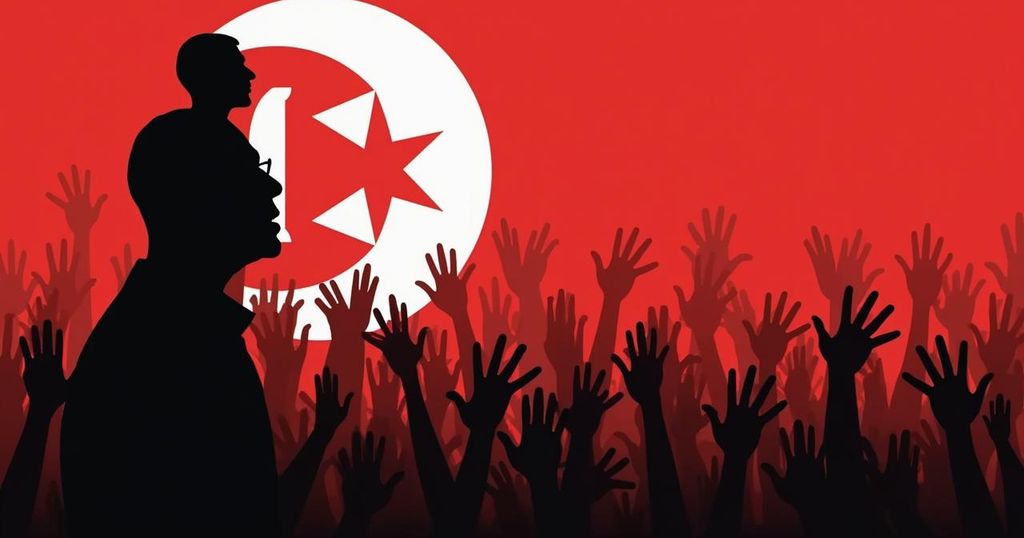Incumbent President Kais Saied appears set to win a second term in Tunisia’s presidential elections amid criticisms of electoral fraud and lack of integrity. The turnout was below 28%, the lowest since the 2011 revolution. Saied’s rivals faced significant challenges, including imprisonment and barring from candidacy, as he solidified his grip on power by disbanding parliament and modifying the constitution. Economic troubles continue to plague the nation, further complicating the political landscape.
On October 6, 2024, Tunisia’s presidential election concluded, with incumbent President Kais Saied positioned for a second term amid allegations of diminished electoral integrity and credibility. The election saw significant exclusions of serious challengers, including one rival currently imprisoned. An exit poll indicated that President Saied garnered approximately 89.2% of the votes, albeit from a notably low turnout of less than 28%, marking the lowest participation rate since Tunisia’s revolution in 2011. Facing Saied were Zouhair Maghzaoui, a former lawmaker who had initially supported Saied’s consolidation of power in 2021 but later sought to run against him, projected to receive around 3.9% of the votes, and Ayachi Zammel, a lesser-known businessman and imprisoned candidate, anticipated to secure roughly 6.9%. The political landscape was further complicated by the absence of many significant opposition figures, either imprisoned or barred from candidacy by an electoral commission appointed by Saied. This included Rached Ghannouchi, head of the Ennahdha party, and Abir Moussi, leader of the Free Destourian Party. Tunisia has long been viewed as a beacon of hope for democracy in the Arab world after the ousting of long-time dictator Zine El Abidine Ben Ali in 2011 marked a significant turning point. However, since being elected in 2019, President Saied has moved to consolidate power, undermining the parliamentary system and rewriting the constitution, taking Tunisia down a path reminiscent of its autocratic past. Reports indicate that over 170 individuals have been detained on political grounds in this new climate. Despite his imminent victory, Saied has refuted accusations of dismantling democracy, labeling his critics as traitors. His tenure has been further marked by ongoing economic distress, characterized by product shortages, electricity and water outages, high unemployment rates, and soaring inflation. Saied’s reluctance to implement unpopular austerity measures has hindered his ability to secure financial assistance, such as loans from the International Monetary Fund, compelling the nation to rely on tourism recovery and European Union support in exchange for strict measures against migration.
The political climate in Tunisia has dramatically shifted since its revolution, which catalyzed the Arab Spring in 2011. Initially considered a democratic success story, Tunisia has seen increasing authoritarianism under President Kais Saied, who assumed office in 2019. Following his consolidation of power, Saied dissolved the parliament and revised the constitution, leading to a critical erosion of democratic processes. His administration has been marked by widespread detentions of opposition figures and severe economic challenges, putting strain on the population.
In summary, the recent presidential election in Tunisia highlights significant concerns regarding electoral integrity and the suppression of opposition voices. President Saied’s projected victory reinforces the trend toward autocracy that has characterized his rule since 2019, raising alarms about the future of Tunisia’s democracy. The economic challenges the nation faces compound these issues, positioning Tunisia at a crossroads between democratic principles and authoritarian governance.
Original Source: www.dw.com






